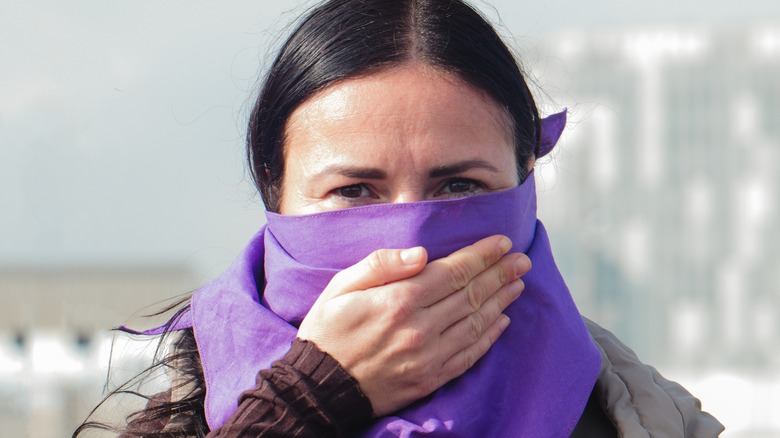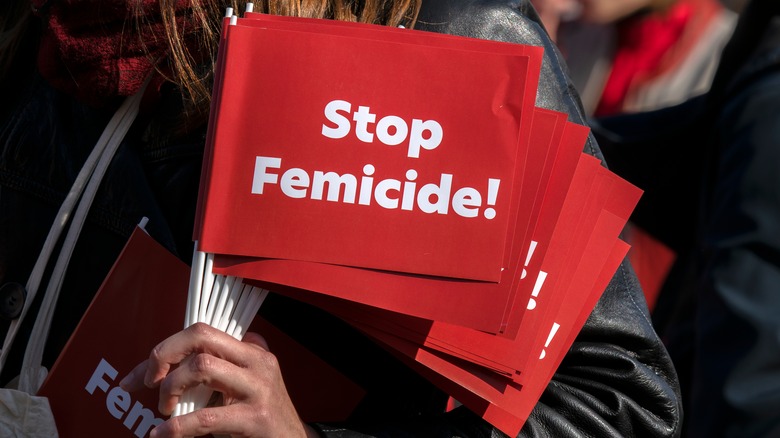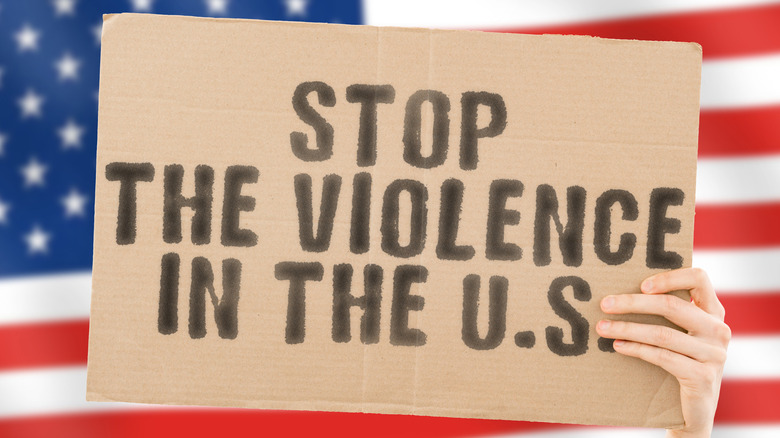What Is Considered Femicide And What Does It Really Mean?
On October 29, 2022, a young woman from North Carolina named Shanquella Robinson was found dead in the room of her vacation rental in Cabo San Lucas, Mexico, where she had traveled with a group of university friends, according to CNN. Videos posted online after her death seemed to show one of her travel companions beating her, and an autopsy found that she had died after her neck was broken and she had sustained serious spinal cord damage, The Washington Post reported. Then, in November, Baja California Sur attorney general Daniel de la Rosa announced that Mexican prosecutors were investigating Robinson's death as a femicide, CNN reported further. But what exactly does this charge mean?
"Femicide is generally understood to involve intentional murder of women because they are women, but broader definitions include any killings of women or girls," the World Health Organization (WHO) explains. It can further be broken down into intimate and non-intimate femicide, according to CNN. Intimate femicide is when the killer is a romantic partner or ex, while non-intimate femicide is when the killer did not have an intimate relationship with the victim. There are also cultural-based forms of femicide, according to WHO. Honor killings occur when family members feel they have to kill a female relative to restore their collective reputation after a real or perceived transgression like adultery or extra-marital pregnancy. Dowry-based femicide most typically occurs in India and involves conflicts between a woman and her in-laws over how much money she brings to the family.
Femicide vs. homicide
Why is femicide considered a separate category from general homicide? There are many important differences between the gender-based murder of a woman and the murder of a man, according to the World Health Organization. Most femicides are committed by the woman's current or former partner and they typically escalate from previous abuse. While 81% of overall murder victims are men or boys, women are in much greater danger in the home, according to the United Nations Office on Drugs and Crime. In 2021, around 56% of female murder victims were killed by their partners or family members compared to only 11% of male victims.
That said, most countries do not consider femicide a separate crime legally. However, by 2015, 16 countries in Latin America including Mexico had added it to their legal codes as a specific crime, according to Global Americans. This was partly in response to rampant violence against women in these countries. In Ciudad Juárez, Mexico, for example, around 30 women have been murdered each year since 1993, according to ReVista. An outcry from the mothers of the murdered women led to more awareness of the issue of femicide in Mexico and around the world. Now, a person convicted of femicide in Mexico can be sentenced to up to 60 years in prison, but experts estimate that around 95% of cases go unprosecuted, according to CNN.
Femicide in the U.S.A.
So what about the U.S.? "Femicides happen all the time in the U.S., and many famous murder cases that we all have in our consciousness are actually femicide, but we don't put that label on them," Emory University's Center for Humanitarian Emergencies director Dabney P. Evans told CNN. A review of FBI cases from 2018 found that 92% of female murder victims were killed by a man they knew and 63% by a husband or someone they knew intimately, according to the Violence Policy Center. Overall, nearly three U.S. women lose their lives to intimate femicide every day, The Guardian reported. Black and Indigenous women are especially at risk.
So should femicide be made a crime in the U.S.? One argument in favor is that it would be easier to have a conversation about femicide if it were officially labeled, Evans told CNN. But involving the criminal justice system could also make the problem worse. Mississippi district attorney Scott Colom told The Guardian that using arrests as a solution puts women in a bind, and they often drop charges in the period between calling the police and the court date, either because they rely on their partners for financial support, have children with them, or don't want to send them to prison.
If you or someone you know is dealing with domestic abuse, you can call the National Domestic Violence Hotline at 1−800−799−7233. You can also find more information, resources, and support at their website.


